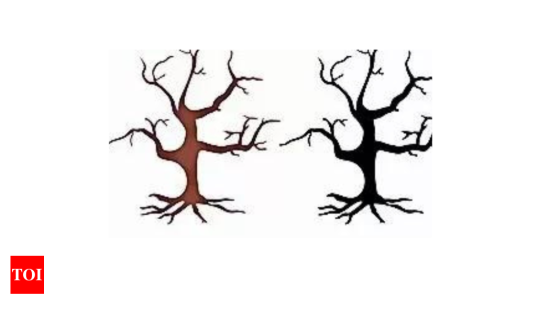PARIS — Yazan Al Bawwab waited for the microphones to arrive, and the recorders to click on, before launching into his passionate “message of peace.”
He swam 100 meters through an Olympic pool Sunday with a Palestinian flag inked on his chest. Then, he delivered a plea, and an outline of his mission as a Palestinian here at the Games: “We’re trying to get the world to know that we’re human beings.”
He said all of it in the context of the bloody conflict that has devastated Gaza. Israel’s response to the attack on its country last October has reportedly killed tens of thousands of civilians, injured many more, and driven over a million Palestinians from their homes.
But his message, he clarified, was not about politics; not explicitly about Israel, nor the Israeli swimmers with whom he is sharing an Olympic pool, nor the 88 Israeli athletes who are here at the Games, despite some calls for them to be banned from international sports.
“I have no problem with any human being — except when you step on our necks,” Al Bawwab said, and his voice became forceful. “That’s when I have a problem. That’s all I have to say. Treat us as human beings. I’ll treat you back as a human being. That’s it.”
He spoke for 16 minutes about the thousands of kids, of Palestinian people, who he said are not being treated as human beings. He said he’d received messages of support from a youngster who, shortly thereafter, Al Bawwab later found out, was killed. He also said friends and family members had died in the war. He spoke about fellow Palestinian athletes, including a runner who posts photos of bandaged wounds; and a weightlifter, Mohammed Hamada, who he says lost over 40 pounds “because he didn’t have food.”
Hamada, Palestine’s flag bearer in Tokyo, fell short of the Olympics.
In total, the Palestinian Olympic Committee sent eight athletes. “Don’t expect us to win any medals if we can’t survive,” Al Bawwab said.
Al Bawwab reached the Olympics in part because he was born and raised abroad. He is the son of Palestinian refugees. His father, Rashad, fled to Italy, sold tomatoes, lived on the streets, and eventually found a path to a better life via education in Genoa.
“It was his dream to be a swimmer,” Yazan said. For Rashad, realizing the dream wasn’t feasible. But when he had a son, born in Saudi Arabia in 1999, “he made me a swimmer,” Yazan said. “That’s my story.” His dad was, and is, his inspiration.
They eventually moved to Dubai, in the United Arab Emirates. Yazan then went off to college in Canada, where he studied aero/mechanical engineering. He got a master’s degree at the University of London. He later lived in the Netherlands, he said, before moving back to the UAE, where he now works in furniture sales, as a coach and as a sports consultant.
All the while, he’s been swimming. He went to Tokyo in 2021. He made it to Paris for a second Olympics.
“And if I’m ever complaining in the pool, I remember people in Gaza, I remember people in Palestine that suffer properly,” he said. “If I’m waking up at 5 a.m., it’s not a problem.”
He wasn’t happy with his one swim here, a 58.26-second finish in Heat 1 of the 100-meter backstroke. But, well, “I’ve had a lot going on. It was really overwhelming these past couple months,” he said. And besides, his goal is broader, bigger. “This is a way to get out the cause,” he said.
That’s what he wants to do going forward. This, he said, would be his swan song, his last competitive swim ever. Next, he wants “to have a voice in sport.”
He is already part of the International Olympic Committee’s “Young Leader” program. His project, SwimHope Palestine, aims to bring his sport, and more importantly life-saving education, to kids in his parents’ homeland.
But it has been difficult. “There’s a war going on! What are you supposed to do when there’s a war?” Al Bawwab asked rhetorically. “You can’t talk to people. The guy I was talking to got killed. There’s no kids. The [United Nations] is suffering. So you can’t get these projects going. It’s just a basic human thing. We first have to get past the human issue, and then we can start talking about sports.”
Most fellow athletes and Olympic participants have treated him as just that, a human. He said he feels supported. “We have a lot of people surprised that we’re even here,” he said. A minority had made jokes or disrespectful comments, he claims, but he didn’t want to name names. “It’s not about hate, it’s about love,” he said. “We have to love each other.”
That’s why he is here, and why he wanted to speak. He felt it was especially important in a country, France, that, like the United States, does not recognize Palestine as a country.
“Yet here I am, with a flag on my chest,” he said.
“I’m very, very happy to represent a country which is not recognized in this country; to raise my flag; to have a lane just for Palestine.”
Source Agencies

